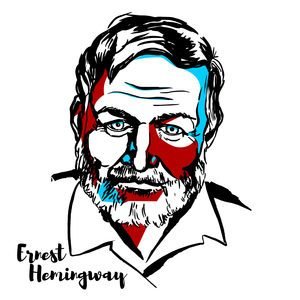 The stories you tell in a job interview should definitely *not* be fiction. Nevertheless, novelists could teach job seekers a few things.
The stories you tell in a job interview should definitely *not* be fiction. Nevertheless, novelists could teach job seekers a few things.
Although I wasn’t able to speak to a famous novelist for this post, here are some novel-writing tips I’ve found that are equally true for job interviews.
To show is better than to tell.
Instead of telling readers that “the detective was very clever,” a novelist shows the detective engaging in clever action–a far more interesting and memorable approach. So instead of saying “I have great communication skills,” prove it with a story about how you upsold a key customer, wrote documentation that reduced tech support calls, or were chosen to coach new team members.
Like a novel, effective interview stories generally include a clear and compelling beginning (a problem), middle (actions taken by the story’s hero in order to solve the problem) and ending (the impact of those actions as the problem becomes resolved).
Start with an outline.
To ensure their story doesn’t meander aimlessly, most novelists set down an outline before writing the novel itself. Similarly, your interview communications will be more clear, compelling and concise if you outline your talking points for answering important interview questions.
Craft a strong opening.
How many times have you read the first page of a novel and thought “Nah, this isn’t my kind of thing”? Novelists pay extra attention to crafting a good opening so readers are impressed, curious and eager to hear more. The opening of your interview communications (after small talk) is likely to be your answer to a question like “Can you tell me a little bit about yourself?” Take the time to plan an answer that impresses–by including the most relevant and convincing facts about you–and that piques curiosity–by being concise rather than comprehensive.
Make the time to work on it.
To write a great novel takes anywhere from a few months to several years. For a great interview, I recommend scheduling at least three sessions and a total of at least three hours, probably more. (Here’s what to do if you don’t have enough time.) Preparing for an interview is a learning process. Most teachers would agree that cramming is not the best way to learn a subject before a test.
Get feedback at the draft stage.
“Winging it” at the interview is like an author publishing an unedited manuscript: the reviews aren’t likely to be favorable. Novelists get feedback on their drafts, and a smart job seeker will do mock interviews before the real thing.
Study the craft.
Most novelists have studied other novels, taken workshops and/or read how-to books. Job seekers can study with a coach and/or read a book like Get That Job! The Quick and Complete Guide to a Winning Interview, 2nd edition.
Don’t give up when you get a rejection slip.
An average interview process involves five or six candidates. That being the case, you may need to interview for several roles before you get an offer. By contrast, publishers often receive five thousand manuscripts and select, oh, maybe five for publication. Both novelists and job seekers need to learn to accept rejections and forge ahead nonetheless.
So you’ve gotten a few messages saying you’re “not a fit for our needs at this time”? Don’t give up. Work hard, work smart, and your job search story is headed for a happy ending.

